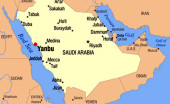Johannah Bernstein post: "eternally proud of my father’s extraordinary aeronautical engineering. legacy. here is a photo of the Canadair Water…
November 22 1963 – fifty years later
Written by Diana Thebaud Nicholson // November 22, 2013 // U.S. // Comments Off on November 22 1963 – fifty years later
American theologian Reinhold Niebuhr wrote of the assassination: “I never knew how his brief and brilliant leadership had touched the imagination and hearts of the common people until this terrible deed ended his career.” The British philosopher Isaiah Berlin went further: “I do not wish to exaggerate: perhaps it is not all similar to what men may have felt when Alexander the Great died; but the suddenness and the sense of exceptional hope for a large number of people suddenly cut off in mid-air is unique in our lifetime – it is as if Roosevelt had been murdered in 1935, leaving Hitler and Mussolini unopposed.” quoted by Brian McKenna in A crime “ripe for unravelling”
Fifty years later, the tragedy and mystery surrounding the death of John F. Kennedy continue to draw the attention of his admirers, detractors, the conspiracy theorists, and the genuinely puzzled who never accepted the findings of the Warren Commission as definitive.
 With the 50th anniversary of his death, it is hard to escape the avalanche of books, films, replays and interpretations of every moment and every possible motivation. Some are thoughtful documentaries that examine the political climate and events leading up to the Kennedys’ trip to Dallas ; others meticulously recreate the scene with the aid of new technologies that enhance the amateur videos available (JFK: The Lost Bullet); still others peer critically at the mythology that has surrounded “Camelot” (The images that created Camelot); and still others indulge the voyeuristic inclinations of viewers who avidly consume every detail of JFK’s affairs (JFK’s Women: Scandals Revealed).
With the 50th anniversary of his death, it is hard to escape the avalanche of books, films, replays and interpretations of every moment and every possible motivation. Some are thoughtful documentaries that examine the political climate and events leading up to the Kennedys’ trip to Dallas ; others meticulously recreate the scene with the aid of new technologies that enhance the amateur videos available (JFK: The Lost Bullet); still others peer critically at the mythology that has surrounded “Camelot” (The images that created Camelot); and still others indulge the voyeuristic inclinations of viewers who avidly consume every detail of JFK’s affairs (JFK’s Women: Scandals Revealed).
There has been an endless stream of books (estimated in 2009 to be well over 2,000 titles) on every conceivable aspect of the Kennedy presidency and the events of November 22, 1963. Some are ponderous, some are pretentious, others are based on what appears to be nothing more than wild conjecture. And still there remain unanswered questions, along with unease that someone is hiding something from us and that the family may have manipulated the facts in order to preserve the Kennedy mystique. The account of author William Manchester’s epic struggles with the family over his authorized The Death of a President only enhance our suspicion that we will never know all the facts.
After the assassination, the journalist Mary McGrory said, “We’ll never laugh again,” and Kennedy aide Daniel Patrick Moynihan famously replied, “Mary, we will laugh again. It’s just that we will never be young again.”
It was a self-fulfilling prophecy. That’s why, 50 years later, the death of John F. Kennedy still resonates so powerfully with those of us who were kids at the time. It was the moment when our parents went from believing in all the great things that were going to be, to regretting what might have been. (Bill Flanagan: JFK assassination: When a nation coming of age lost its youth), also quoted by Peggy Noonan on Face the Nation
For the younger generations, the replay of the news clips every year on the anniversary of his death must surely create a faux memory of having witnessed the events of that week.
CBS leads the pack with its coverage this week, starting with Face The Nation which is appropriate given the unforgettable 4-day anchoring of Walter Cronkite throughout that dreadful week.
Few people old enough to remember that day can forget where they were when they heard the news.
PBS asks “Where were you when you heard JFK had been shot?” – the responses are touching and give some sense of how people around the world reacted. One of our friends, a foreign correspondent with the New York Times, who was following a story in South America, told us afterwards that he could not believe the news until he saw it in the international edition of the Times.
 Our friend Alan Hustak shared this bulletin with us, explaining:
Our friend Alan Hustak shared this bulletin with us, explaining:
Fifty years ago, when teletypes were still around, I had just finished school in Washington and got a job reading the news for CKOM in Saskatoon. I finished the 12 noon newscast on Friday, Nov. 22, and as I was leaving the studios for lunch, this came across the wire…I had forgotten I had saved all of the wire copy from that day, put in a manila folder, and gave it to mom. I found this among her things after she died. I have most of the copy… this is the first bulletin ……
Conspiracy theories
UPI reviews an intriguing set of arguments in The Kennedy assassination — did the mob do it?, based on a new book by Lamar Waldron The Hidden History of the JFK Assassination. Meanwhile Dr. Jerome Corsi lays out his theory that the military and financial elites were responsible Who Really Killed Kennedy?: 50 Years Later: Stunning New Revelations About the JFK Assassination. Warning: the reviews aren’t flattering.
The best bet appears to be A Cruel and Shocking Act: The Secret History of the Kennedy Assassination in which author Philip Shenon examines the workings of the Warren Commission. Not a conspiracy advocacy, just a thorough report on the Commission’s work. Good reviews by, among others, the disparate trio of Bob Schieffer, Peggy Noonan and Lou Dobbs.
Timely Canadian commentaries: Conspiracy theories never go away
“You’ve probably got 20 or 30 conspiracy theories out there right now,” said Queen’s University professor Geoff Smith, who has been dealing with those questions, along with conspiracy theories in general, for more than 35 years with his course Conspiracy and Dissent in U.S. History.
Brian McKenna’s fascinating blog A crime “ripe for unravelling” poses a discomforting number of unanswerable or unanswered questions – excellent research (of course) and very well written.
Dr. Charles Cogan, on the other hand, writes in an essay published on H-Diplo titled The Assassination of Kennedy Fifty Years Later: The Cuban Question Mark
The assassination of John F. Kennedy was intimately linked, if only in a subliminal fashion, to American actions against Cuba at the beginning of the 1960’s, which in turn formed part of an aggressive and interventionist policy that marked the early phase of the Cold War.
In the month – and week – when many celebrate the 150th anniversary of the Gettysburg Address (A short speech, long remembered: Gettysburg Address praised at Pa. battle site 150 years later) delivered by another president who fell victim to an assassin’s gun, it is good to remember that 2013 is also the 50th anniversary of John Kennedy’s Civil Rights Speech which represented perhaps THE turning point in the fight for civil rights. For background see: Robert Schlesinger — The Story Behind JFK’s 1963 Landmark Civil Rights Speech
William Watson: Kennedyism — we’ve come a long way in 50 years, from Camelot to Claim-a-lot
Kennedy became the ideal charismatic leader. But to we really need our leaders to be heroes and inspirers?
(Financial Post) Ask not what you can do for your country. Ask — no, demand — that your country honour your litigated human right as a member of identifiable group A, B or C to entitlement X, Y or Z. On second thought, make that X, Y and Z.
We have come a long way in 50 years. From Camelot. To Claim-a-lot. Claim as much as you can, in fact. No doubt you’re entitled to it.
There never was a “Kennedyism” in the way there was a “Reaganism,” “Thatcherism” or even a “New Deal.” John Kennedy did invoke the “New Frontier.” But that was more an attitude than a program. His injunction to do something for one’s country and to do it, as he believed one should do everything, with vigour — which to the mimics’ delight he pronounced “viggah” — is hardly objectionable. Since the Greeks and Romans civic-mindedness has been a virtue. Kennedy, a rich man’s son, gave away his government salaries to charity (though he also sought and never renounced politics’ biggest brass ring). That tens of thousands of idealistic young Americans joined the Peace Corp and went to Africa and Asia or to Latin America under the Alliance for Progress to help build or run schools, vaccinate children and perform other genuinely kind and helpful deeds was all to the good.
But it was a different time. There was, to all intents and purposes, a war on.
Anniversary of JFK death brings sadness, solemnity
(AP) — It was the same time, 12:30 p.m., Friday, Nov. 22. It was the same place, downtown Dallas.
But 50 years later, the thousands of people who filled Dealey Plaza weren’t there to cheer but to remember in quiet sadness the young, handsome president with whom Dallas will always be “linked in tragedy.”
The solemn ceremony presided over by Mayor Mike Rawlings was the first time the city had organized an official Kennedy anniversary event, issuing 5,000 free tickets and erecting a stage with video screens.
Somber remembrances extended from Dallas to the shores of Cape Cod, with moments of silence, speeches by historians and, above all, simple reverence for a time and a leader long gone.
Exhibits, talks and films will mark the 50th anniversary of JFK’s assassination
November marks the 50th anniversary of the assassination of John F. Kennedy, shot while riding in a motorcade through the streets of Dallas. The death of America’s 35th president, which took place during a year of violence and social upheaval, was marked by iconic news coverage that helped solidify our national shift into the modern television era.



